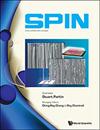图刻录的近似算法和下界
IF 0.7
4区 物理与天体物理
Q4 PHYSICS, APPLIED
引用次数: 2
摘要
图燃烧将信息在给定图中的传播建模为这样一个过程:在每一步中,一个节点被感染(被告知),并且感染传播到先前被感染节点的所有邻居。形式上,给定一个可能有边长的图G = (V, E),燃烧数b (G)是使存在节点V 0,…的最小数G。, v g−1∈v满足对于每一个u∈v存在i∈{0,…, g−1}使得u和vi之间的距离不超过I。我们提出了一个随机的2。314近似算法,用于计算一般图的燃烧数,即使具有任意的边长度。对于等长边的近似下界为2,对于长度限制为1的边的近似下界为4 / 3。这改进了之前的3-近似算法和apx硬度结果。本文章由计算机程序翻译,如有差异,请以英文原文为准。
Approximation Algorithms and Lower Bounds for Graph Burning
Graph Burning models information spreading in a given graph as a process such that in each step one node is infected (informed) and also the infection spreads to all neighbors of previously infected nodes. Formally, given a graph G = ( V, E ), possibly with edge lengths, the burning number b ( G ) is the minimum number g such that there exist nodes v 0 , . . . , v g − 1 ∈ V satisfying the property that for each u ∈ V there exists i ∈ { 0 , . . . , g − 1 } so that the distance between u and v i is at most i . We present a randomized 2 . 314-approximation algorithm for computing the burning number of a general graph, even with arbitrary edge lengths. We complement this by an approximation lower bound of 2 for the case of equal length edges, and a lower bound of 4 / 3 for the case when edges are restricted to have length 1. This improves on the previous 3-approximation algorithm and an APX-hardness result.
求助全文
通过发布文献求助,成功后即可免费获取论文全文。
去求助
来源期刊

Spin
Materials Science-Electronic, Optical and Magnetic Materials
CiteScore
2.10
自引率
11.10%
发文量
34
期刊介绍:
Spin electronics encompasses a multidisciplinary research effort involving magnetism, semiconductor electronics, materials science, chemistry and biology. SPIN aims to provide a forum for the presentation of research and review articles of interest to all researchers in the field.
The scope of the journal includes (but is not necessarily limited to) the following topics:
*Materials:
-Metals
-Heusler compounds
-Complex oxides: antiferromagnetic, ferromagnetic
-Dilute magnetic semiconductors
-Dilute magnetic oxides
-High performance and emerging magnetic materials
*Semiconductor electronics
*Nanodevices:
-Fabrication
-Characterization
*Spin injection
*Spin transport
*Spin transfer torque
*Spin torque oscillators
*Electrical control of magnetic properties
*Organic spintronics
*Optical phenomena and optoelectronic spin manipulation
*Applications and devices:
-Novel memories and logic devices
-Lab-on-a-chip
-Others
*Fundamental and interdisciplinary studies:
-Spin in low dimensional system
-Spin in medical sciences
-Spin in other fields
-Computational materials discovery
 求助内容:
求助内容: 应助结果提醒方式:
应助结果提醒方式:


